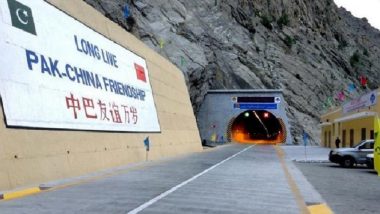Pakistan has announced that it is shaving off $2 billion dollars from the Chinese Silk Road Project, owing to its burgeoning debt burden.
The announcement was made by Pakistan’s Railway Minister Sheikh Rasheed as the budget cut comes from the project revamping of the country’s nearly 1,900-kilometer colonial-era railway line under an ongoing bilateral economic development mega project funded by China, according to a report by Reuters.
The upgrade of the railway line to a “standard gauge” was to be undertaken at an estimated budget of $8.2 billion as part of the China-Pakistan Economic Corridor (CPEC). “Today the estimated project cost stands at $6.2 billion. The amount we have cut was the share of people,” said the Pakistani railway minister. Rashid also said his ministry will try to further lower costs because, “ultimately, our poor nation will have to pay back the Chinese loan.”
The changes are part of Pakistan’s new government’s efforts to get a handle on its budget, and Imran Khan is re-evaluating the pledged investment by China worth $60 billion to re-haul the country’s infrastructure.
China has called Pakistan as a key peg in its Belt-and-Road Initiative. CPEC is supposed to bring an estimated $60 billion in direct and indirect investment to Pakistan within the next decade. Morgan Stanley has estimated the initiative will cost $1.3 trillion by 2027. Xi has called it the "project of the century," comparing it to the ancient Silk Road that made China a hub of international commerce.
Pakistan is not the only country looking to re-evaluate its projects with China fearing falling into a debt trap. In recent weeks, Malaysia’s prime minister Mahathir Mohamad has cancelled a $20 billion project signed by its earlier prime minister.
In fact, one analyst has gone so far as to call China the new IMF. Rajrishi Singhal writes that China has been picking up debt wherever IMF or other multilateral agencies are unable to provide a lifeline. For example, it is believed that China now owns anywhere between one-quarter to one-third of Zambia’s external debt...China has been providing this debt relief against the security of state infrastructure assets.
Sri Lanka has had to sign over its Hambantota port to a Chinese company for a 99-year lease as it could not service the projected debt. The newly elected government in Maldives too has said it will re-evaluate infrastructure projects signed by its President Yameen.
Pakistan's caution comes in the face of these examples of China's increasing footprint in debt-lending across the globe.
(The above story first appeared on LatestLY on Oct 02, 2018 08:23 AM IST. For more news and updates on politics, world, sports, entertainment and lifestyle, log on to our website latestly.com).













 Quickly
Quickly


